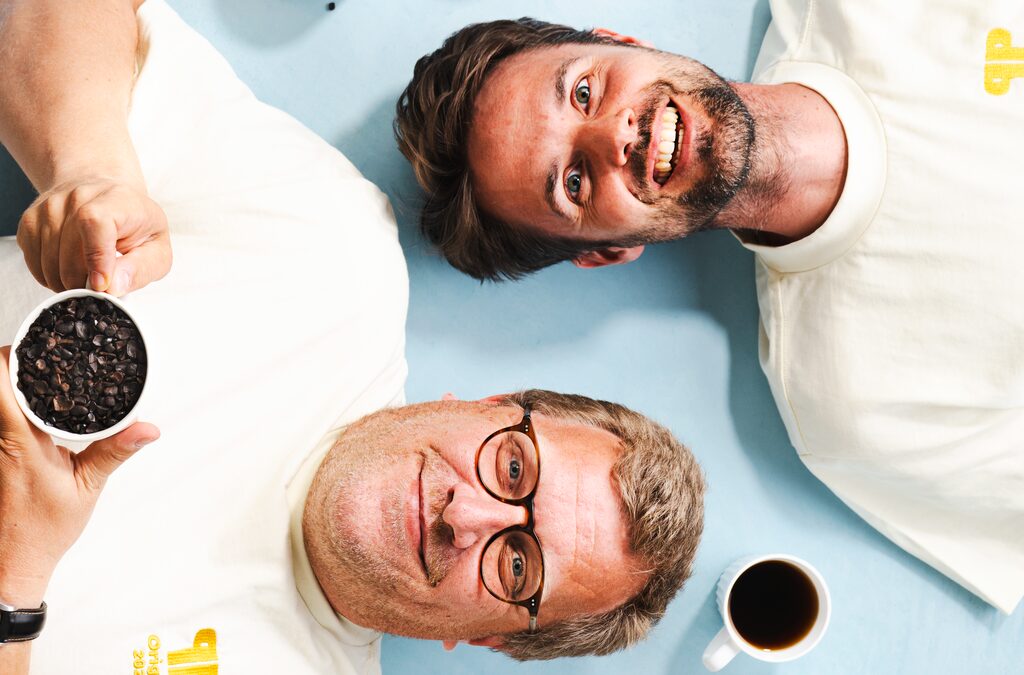Key Takeaways
- Belgian startup Koppie is developing a fermentation and roasting process to create coffee-like beverages from pulses, addressing rising coffee prices and availability issues.
- Koppie has secured pre-seed funding and plans to supply its products to coffee companies, targeting a commercial launch in 2026.
- Independent tastings have rated Koppie’s pulse-based coffee at 70/100, showing promise in the competitive coffee market.
Innovative Approach to Coffee Alternatives
Koppie, a Belgian startup, is entering the alternative coffee market with a unique fermentation and roasting technology that transforms pulses, such as chickpeas and yellow peas, into coffee substitutes. The company, founded by marketing expert Daan Raemdonck and bioscience engineer Dr. Pascal Mertens, has recently acquired significant pre-seed funding led by Nucleus Capital, alongside contributions from Mudcake, Rockstart, and angel investors. This funding will support the scaling of Koppie’s innovative technology.
The coffee industry faces challenges from climate change, with estimates suggesting that suitable land for growing Arabica coffee could halve by 2050. Additionally, the volatility of coffee prices, which have consistently trended upward, presents further hurdles for producers. World Coffee Research warns of a looming shortfall in green coffee by 2030, prompting Koppie co-founder Daan Raemdonck to stress the need for novel solutions to navigate these challenges.
Koppie aims to establish itself in the B2B market by supplying its ingredient to coffee companies, instead of initially targeting consumers directly. The founders recognize that many coffee drinkers are unaware of the threats to traditional coffee sourcing, making it challenging to promote sustainability as a primary selling point. The business model focuses on blending Koppie’s product with conventional coffee, allowing companies to market hybrid products without significant changes to taste or preparation methods.
The startup stands out for its single-ingredient approach. Koppie’s manufacturing process hinges on a patent-pending technique that ferments and roasts pulses, creating a product that exhibits significantly coffee-like qualities, such as sweetness without bitterness. This method also allows Koppie to integrate seamlessly into existing coffee production processes, reducing costs and complexity for potential partners.
With current funding, Koppie is poised to increase production from kilograms to tons by year-end, aiming to conduct in-market tests as well. The company has identified multiple industrial approaches for testing its manufacturing capabilities, enhancing its ability to meet market demands.
Koppie’s work comes during a time when coffee prices remain high, prompting industry awareness of the necessity for alternatives. Conversations with coffee firms reveal three main groups: those that are unaware of alternatives, those open to exploration, and those already invested in alternative solutions. Koppie’s ability to achieve a tasting score of 70/100 from independent coffee graders is promising. This score suggests that Koppie’s product competes well with commercial coffee, and expectations for improvement could see it reach specialty coffee grade levels.
The startup’s focus on taste and brewing experience is central to its product development. As coffee prices and climate threats persist, Koppie’s pursuit of a scalable, sustainable alternative positions it favorably within an evolving market. Continued efforts to refine and test its offerings could lead to significant developments in the alternative coffee landscape.
The content above is a summary. For more details, see the source article.















